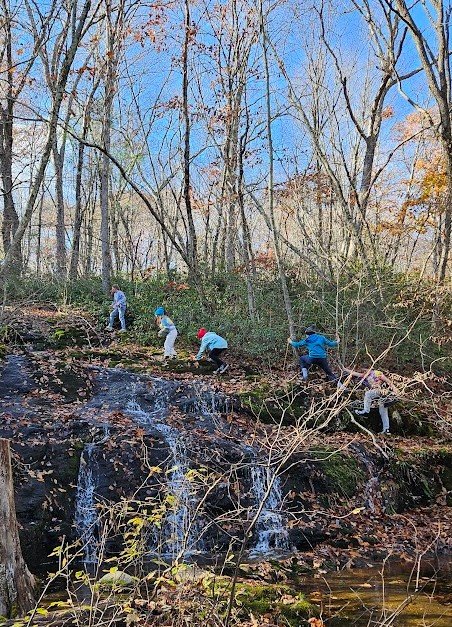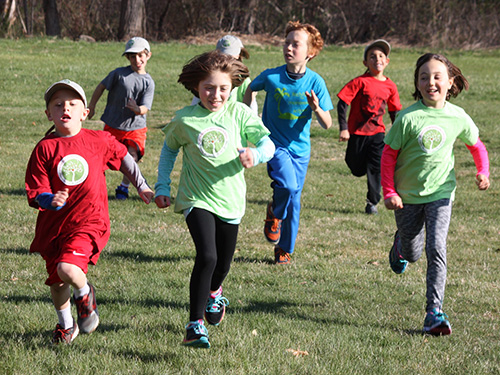Outdoor Education
In a Montessori classroom the senses play a key role in the presentation of all lessons. Ideas are presented first in a concrete way, so that the child may use his or her senses to explore that idea before moving to think of that same concept in the abstract. Maria Montessori viewed the outdoor environment as a natural extension of the sensorial experience available in a Montessori classroom. Outside, children are immersed in an environment which is rich in sensorial experience: the sound of birds, the color of the sky, the feel of bark on their fingertips, the tangy smell of a crushed leaf. As teachers move around the classroom they model lessons in grace and courtesy. As we guide the children to explore the world outside the school, they forge a connection to nature learning respect for the environment and for all living things.
Our outdoor program has opportunities for students of all ages. Each classroom (Young People’s Community, Children’s House, and Elementary) has an outdoor classroom. These sheltered spaces provide the teachers with the opportunity to present lessons outside in a safe environment. We built and now maintain a walking trail around Northfield Pond in Humaston State Park, adjacent to campus. This walking trail makes the pond more accessible to teachers and opens up the possibility of short science and nature-based field trips.

The Upper Elementary children begin the school year with an overnight camping trip. This builds social bonds that strengthen throughout the year and introduces them to new outdoor skills. Over the course of the school year, Upper Elementary students explore new challenges such as hiking, rock climbing, canoeing and caving. The year culminates with a camping trip, where students explore their natural world and exercise the skills they have been developing throughout the year. These trips provide students with a great mix of new challenges and opportunities to build teamwork and leadership skills as well as build their own fantastic memories of exploring outdoors.
Support the classroom:
Wilderness Wish List
Physical Education
Physical education begins with basic movement at the youngest levels and progresses to the concepts of more formal games and sports. Our children develop physical confidence as well as their sense of fair play, teamwork, sportsmanship, and the foundations of life-long fitness.





